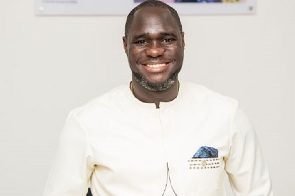John Moores University in Liverpool has conferred an Honorary Fellowship, an honour reserved for individuals of outstanding achievement, on President John Agyekum Kufuor. This is in recognition of the exemplary leadership he is providing in the promotion of democracy, the rule of law and education.
The university, founded in 1825 and named after one of the UK’s foremost entrepreneurs, Sir John Moores, is the 15th largest in that country. A citation read by Professor Lord David Alton, the Lord of Liverpool, noted that Ghana under President Kufuor had developed a vigorous democracy that was sending out a positive signal in the volatile region of Africa and beyond.
“As Ghana celebrates the 50th anniversary of political independence, there could be no better time for the university to recognise such an outstanding citizen.”
President Kufuor said he shared the honour with his country and Africa, stating, “It is an honour to me, my country, Ghana and I daresay Africa.”
He dedicated it to all people, who over the years have worked to promote the inalienable right of man to freedom. Delivering this year’s “Roscoe Lecture” on the theme “Human Rights and the Citizen” at the university later, President Kufuor said the establishment of the International Criminal Court before which suspects, including even Heads of State, could be hauled to answer charges of grievous human rights violations, like genocide, was an important landmark.
This, he said, pointed to major inroads made into the concept of sovereignty and territorial integrity, hitherto held sacrosanct and behind which human rights abuses and atrocities have been perpetrated against innocent people. The Roscoe Lectures provide the platform for leading figures from both the UK and other parts of the world to join people in Liverpool to explore what it means to be a good citizen in the 21st Century.
The Dalai Lama, Mr Lech Walesa, a former President of Ireland and Mary McAleese, a former President of Ireland are among previous Roscoe Speakers.
President Kufuor called for a global citizenship that should be based on fellow feeling and which should transcend ethnic, racial, gender, territorial and continental lines.
“Requiring neither passport nor visa, global citizenship is simply the commitment to be agents of change for a better global citizenship in which we each serve as our brother’s keeper and act as good Samaritans to one another”, he added.
General News of Tuesday, 20 March 2007
Source: Public Agenda
















